The views expressed in our content reflect individual perspectives and do not represent the authoritative views of the Baha'i Faith.
Chances are, if you’re young and not white, at least one adult in your life has already had “the talk” about the police with you.
One African-American writer, Ta-Nehisi Coates, won the American National Book Award for his version of “the talk” with his teenaged son. The book he wrote—Between the World and Me—tells the story of a parent’s agonizing decision to educate his young boy about racism, racial violence and the role of the police in the lives of people of color. Here’s a short excerpt:
I write you in your fifteenth year. I am writing you because this was the year you saw Eric Garner choked to death for selling cigarettes, because you know now that Renisha McBride was shot for seeking help, that John Crawford was shot down for browsing in a department store. And you have seen men in uniform drive by and murder Tamir Rice, a twelve-year-old child whom they were duty-bound to protect. And you have seen men in the same uniforms pummel Marlene Pinnock, someone’s grandmother, on the side of the road. And you know now, if you did not before, that the police departments of your country have been endowed with the authority to destroy your body. It does not matter if the destruction is the result of an unfortunate overreaction. It does not matter if it originates as a misunderstanding. It does not matter if the destruction springs from a foolish policy… The destroyers will rarely be held accountable. Mostly they will receive pensions. And destruction is merely the superlative form of a dominion whose prerogatives include friskings, detainings, beatings, and humiliations. All of this is common to black people. And all of this is old for black people. No one is held responsible. – Ta-Nehisi Coates, Between the World and Me, p. 9.
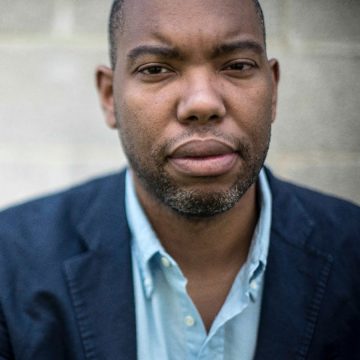
Ta-Nehisi Coates
Coates wrote a particularly powerful book, not only because it tackles a major global issue—racism and racial prejudice—but because it addresses the subject in such a tender and heartbreaking way. When you read it, you can literally feel this father’s love for his young son, and his terror and rage at what might happen to him as a result of society’s rampant racism.
My wife and I—both of us white—had “the talk” with our African-American grandson. Long before our daughter married an African, we knew she had deeply invested her mind, heart and soul in the Baha’i principle of the oneness of humanity. We were very excited about their union, not only because we love them both but because the Baha’i teachings encourage interracial marriage, and advise all people to look beyond skin color to the essential humanity of every person:
… your statement to the effect that the principle of the oneness of mankind prevents any true Baha’i from regarding race itself as a bar to union is in complete accord with the Teachings of the Faith on this point. For both Baha’u’llah and Abdu’l-Baha never disapproved of the idea of interracial marriage, nor discouraged it. The Baha’i Teachings, indeed, by their very nature transcend all limitations imposed by race… – Shoghi Effendi, Directives from the Guardian, p. 43.
Of course, just because we gave our consent and enthusiastic encouragement doesn’t mean we’re blind to the difficulties that surround the issues of race in our culture.
So here’s how “the talk” with our grandson went: if you get pulled over, keep your hands in sight. Don’t make any sudden movements. Be polite—no, be super-polite. Comply. Do what the police officer asks you to do, and do it while moving slowly. Tell the officer what you’re doing while you do it—“I’m reaching for my wallet to give you my license. I’m reaching into my glovebox to get my registration.” Answer questions with simple “Yes” or “No” answers. Don’t talk back, get offended or raise your voice. Do not make any snide remarks about doughnuts. (Only kidding about that last part.)
I shouldn’t joke about it—because this is dead serious. I hear from my friends that just about every African-American, Latino, Asian, indigenous and interracial kid gets some version of “the talk” as soon as they’re old enough to go out into the world on their own. So—what’s wrong with this picture?
We solve it, or at least begin to understand and address it, by acknowledging that we live in cultures which still judge and pre-judge people on the basis of their skin color. Sadly, society has swallowed this whole idea of “race,” assigning artificial categories to people based on pigment. When you think about it, and investigate it, and challenge the underlying idea behind it, you soon recognize the long-established scientific fact that color-coded divisions do not actually exist between human beings—that the entire idea of “race” and “racial groups” is a socially-constructed fiction with no basis in reality:
Scientists have reached general agreement in recognizing that mankind is one: that all men belong to the same species, homo sapiens. It is further generally agreed among scientists that all men are probably derived from the same common stock; and that such differences as exist between different groups of mankind are due to the operation of evolutionary factors of differentiation such as isolation, the drift and random fixation of the material particles which control heredity (the genes), changes in the structure of these particles, hybridization, and natural selection. …
The biological fact of race and the myth of ‘race’ should be distinguished. For all practical social purposes “race’ is not so much a biological phenomenon as a social myth. The myth of ‘race’ has created an enormous amount of human and social damage. In recent years it has taken a heavy toll in human lives and caused untold suffering. It still prevents the normal development of millions of human beings and deprives civilization of the effective co-operation of productive minds. The biological differences between ethnic groups should be disregarded from the standpoint of social acceptance and social action. The unity of mankind from both the biological and social viewpoints is the main thing. To recognize this and to act accordingly is the first requirement of modern man. – The UNESCO Statement on Race, 1950, by chief author Ashley Montagu and a prestigious panel of expert scientists and anthropologists.
Race, the scientific consensus clearly tells us, is a social myth. If that’s true, why does it have such a strong hold on our hearts and minds? Why do we still separate people by color? Why does it still give parents and grandparents that onerous and truly troubling task of having “the talk”?
In the next installment in this series, let’s explore those important questions.
You May Also Like
Comments



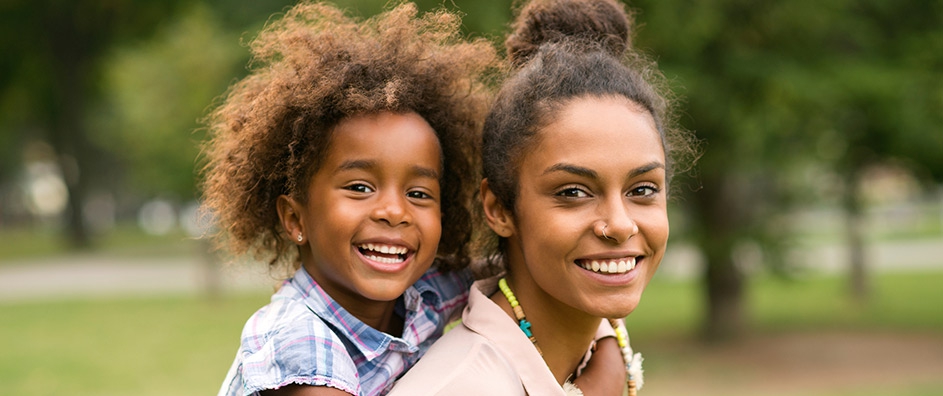

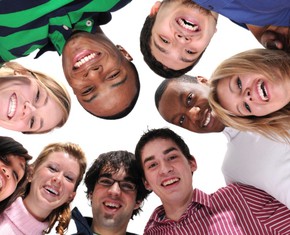
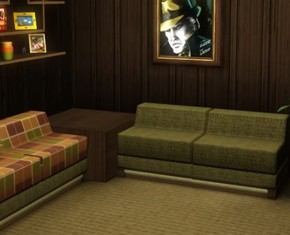
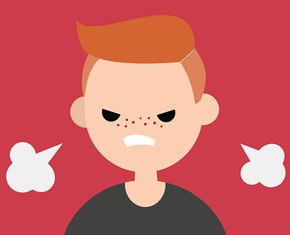









For me, it's showing respect for authority, as I'm sure it is for most of us.
I'm white, yet I take nothing for granted when stopped or questioned by ...police. I know a policeman who was shot. I know they are on edge. I know they have to distinguish a lie from the truth in a split-second perception. More diversity training may help. Attitudes must change.